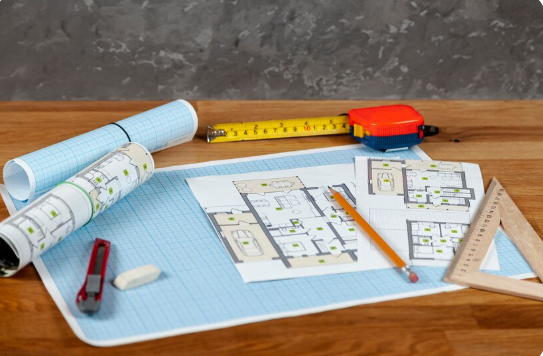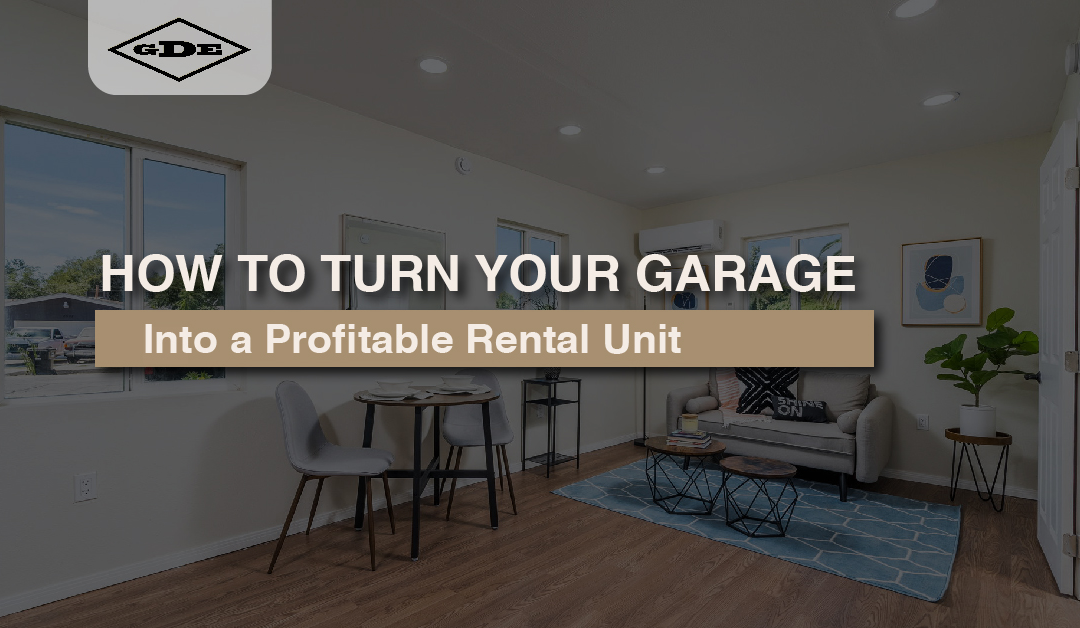How to Turn Your Garage into a Profitable Rental Unit
As property values rise and the demand for affordable housing continues to grow, homeowners are exploring new ways of garage remodeling for rental income from their existing space. One smart solution? A garage conversion rental unit. By transforming an underutilized garage into a livable space, you can tap into a consistent revenue stream without purchasing new property.
In this guide, we’ll walk you through everything you need to know about your garage apartment ideas for a rental-ready unit—from legal considerations to design tips and cost breakdowns.
Why Consider a Garage Conversion Rental Unit?
Many homeowners overlook the hidden value of sitting in their garage. Most garages are used for storage, or worse, become clutter magnets filled with unused items. Converting this space into a garage conversion rental unit offers numerous benefits:
- Earn Passive Income: Can rent out the space to long-term tenants, students, or even as an Airbnb.
- Boost Property Value: Adding a livable unit always helps in increasing your home’s overall worth.
- Flexibility: Can be used as a guest suite, or home office, or returned to storage if needed.
- Maximize Urban Space: Especially in cities with housing shortages, garage units are in demand, which has its multi-functional benefits.
Here’s a step-by-step guide to creating garage conversion rental units.

Step 1: Check Zoning Laws and Local Regulations
Before you even start with any renovation, your first step is to research whether your city or county allows garage conversions. Local zoning laws often determine:
- If a garage-to-ADU conversion is permitted.
- Minimum square footage for rentals.
- Parking requirements.
- Ceiling height, ventilation, and fire safety codes.
Contact your local building department or city planning office to get clear answers. In some areas, converting a garage into a rental unit without a permit is illegal and may result in fines or forced demolition.
Pro tip: When talking to local authorities, refer to your project as an ‘accessory dwelling unit’ or ADU—the formal term for a garage conversion rental unit.
Step 2: Evaluate the Garage Structure
Once you’re legally clear to go ahead with the renovation, assess your garage’s current condition. Some garages may require significant upgrades before they’re suitable for conversion.
Have a licensed contractor or structural engineer assess these key areas:
- Foundation stability.
- Roof integrity is especially crucial when adding insulation or an HVAC setup.
- Waterproofing and drainage.
- Wall insulation and framing.
- Electrical wiring and outlets.
Older detached garages may require more extensive upgrades. If you’re converting an attached garage, integration with existing utilities (plumbing, electricity, HVAC) may be more cost-effective.
Step 3: Set a Realistic Budget
A detached garage rental conversion is generally more affordable than building an entirely new unit, but costs can still add up depending on your choices and local labor rates.
The cost of a garage conversion rental unit generally falls based on factors like:
- Size and existing condition of the garage.
- Quality of materials and finishes.
- Whether plumbing and kitchen facilities are added.
- Labor and permitting fees.
Step 4: Plan the Layout for Comfort and Efficiency
Garage spaces are typically compact, so maximizing functionality is essential. A smart garage conversion rental unit design balances comfort, storage, and privacy in a limited footprint.
Key Elements On How To Convert a Garage Into a Living Space:
- Natural light helps the space feel larger—consider installing windows or a skylight.
- Install quality insulation to maintain indoor comfort and reduce energy bills.
- Bathroom: A private bathroom adds significant rental value.
- Compact Kitchen: Consider a kitchenette with a sink, small fridge, and microwave.
- Storage Solutions: Use vertical space for shelves or built-in closets.
- Private Entrance: Ideal for tenant privacy and independent access.
Consult an architect or interior designer to help make the most of every square foot.
Step 5: Secure Permits and Hire Professionals
No matter your DIY skills, most garage conversion rental units still need licensed professionals. Electrical, plumbing and structural changes must meet code, and getting proper permits is not optional.
Always Hire Someone Who Is:
- A general contractor for oversight and coordination.
- Licensed electricians and plumbers for systems work.
- An architect if you’re making significant structural changes.
Step 6: Furnish and List Your Rentals
Once construction is complete, it’s time to furnish and prepare the space for tenants.
Furnishing Tips For Increasing the Chances of Prospective Tenants:
- Choose multi-functional furniture like a Murphy bed or a sofa bed.
- Neutral shades make the space more universally appealing to prospective renters.
- Ensure high-speed internet access, especially for remote workers.
- Add blackout curtains, a smart lock, and noise insulation for privacy.
Where To List:
Airbnb or VRBO for short-term rentals.
Craigslist, Zillow, or Facebook Marketplace for long-term tenants.
Consider student housing boards if you’re near a college or university.

Step 7: Understand Landlord Responsibilities
Once your garage conversion rental unit is rented out, you’ll officially become a landlord. This role carries important obligations:
- Create a written lease agreement.
- Establish a reliable method for handling rent payments and maintenance issues.
- Know local landlord-tenant laws, including eviction procedures and deposit handling.
- Purchase landlord insurance, not just homeowners insurance.
If you plan to run the unit as a short-term rental, research city rules regarding Airbnb-type accommodations and any taxes you may owe.
Bonus: Return on Investment Garage Conversion and Long-Term Gains
Wondering if it’s all worth it? Here’s a look at how a garage conversion rental unit can pay off:
- Rental income: A well-designed unit can bring in $800 to $2,500/month, depending on the location.
- Property value boost: Adding a legal rental unit can increase your home’s value by 20%–30%.
- Tax deductions: You may be eligible to deduct depreciation, repairs, utilities, and more.
- Retirement strategy: Passive rental income can supplement retirement savings.
Final Thoughts
Turning your garage into a garage conversion rental unit is a smart and sustainable way to unlock new income from unused space. By hiring a professional like Danz Construction, with their proper planning, budgeting, and execution, you can create a comfortable, code-compliant living space that meets housing demand while putting extra cash in your pocket.
As housing markets tighten and urban areas become denser, garage conversions aren’t just a trend—they’re a strategic move toward smarter homeownership.
Frequently Asked Questions (FAQs)
1. Are garage conversion rental units allowed everywhere?
No, the legality of a garage conversion rental unit depends on local zoning laws and building codes. Consult your local planning office to ensure your project complies with regulations.
2. What’s the typical cost of a garage conversion rental unit?
A garage conversion rental unit can cost anywhere from $20,000 to $70,000, depending on the garage’s current condition, size, and the features you want to add.
3. Is a permit required for a garage conversion rental unit?
Yes, in most areas, you’ll need permits and inspections before creating a garage conversion rental unit. Without them, you could face penalties or be required to undo the work.
4. Will converting my garage into a rental unit add value to my home?
Yes, a properly permitted and thoughtfully designed garage conversion rental unit can enhance your home’s market value and attract more interest from buyers or renters.
5. What essentials should a garage conversion rental unit have?
Essential features include proper insulation, heating/cooling, a bathroom, a kitchenette, natural light, and a private entrance to ensure tenant comfort and code compliance.

